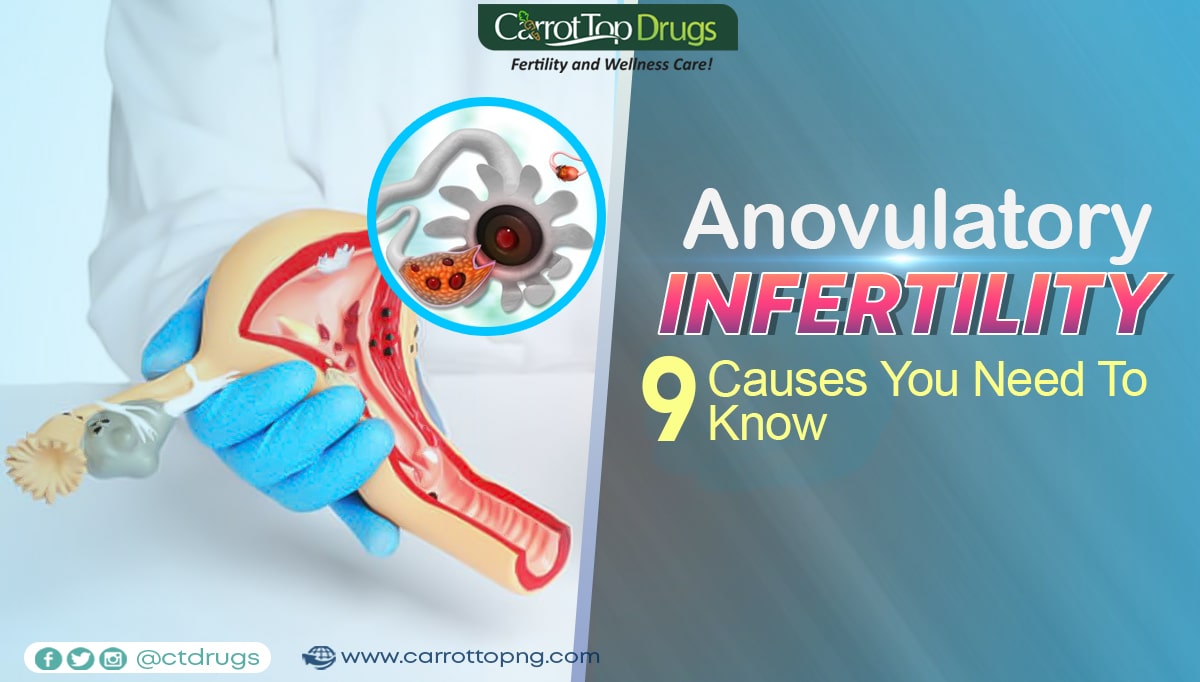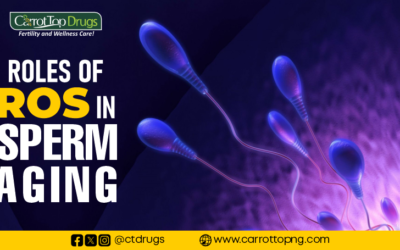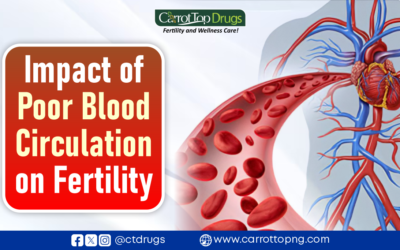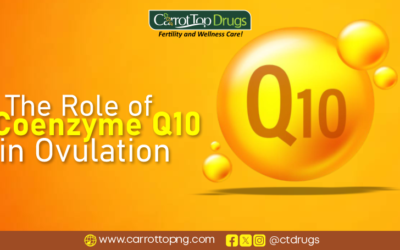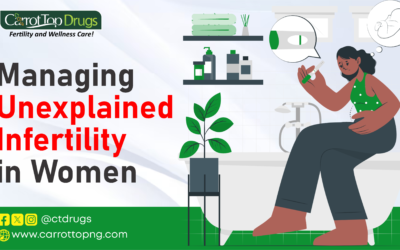Introduction
Infertility can be a distressing condition for couples who are trying to conceive. Anovulatory infertility is a type of infertility due to failure to ovulate normally. Ovulation is the process of the release of a mature egg from the ovary. The release of these eggs is necessary for fertilization to occur. Anything that affects this process, affects a woman’s fertility. According to research, Ovulatory disorders make up 25% of the known causes of female infertility.
In this article, we will discuss the causes of anovulatory infertility.
Causes of Anovulatory Infertility
Anovulatory infertility can have various causes, including:
Polycystic ovary syndrome (PCOS)
Polycystic ovary syndrome (PCOS) is a common cause of anovulatory infertility in women. PCOS is a hormonal disorder that affects the ovaries. It causes irregular ovulation or even the absence of ovulation. Most women in this condition have multiple cysts in their ovaries. Hence, the name polycystic ovary syndrome.
Women with PCOS often have higher levels of androgen hormones such as testosterone. This elevation of androgens can interfere with the normal functioning of the ovaries. This hormonal imbalance can lead to anovulatory infertility. Other symptoms such as acne, weight gain, and excessive hair growth on the face and body can be experienced by women who have PCOS.
It is important to note that not all women with PCOS will experience infertility.
Hypothalamic dysfunction
Hypothalamic dysfunction is another possible cause of anovulatory infertility in women. The hypothalamus, which is a part of the brain, plays a crucial role in regulating the menstrual cycle. It releases hormones that stimulate the pituitary gland. The pituitary gland, then, produces follicle-stimulating hormone (FSH) and luteinizing hormone (LH). These hormones are responsible for triggering ovulation.
If the hypothalamus is not functioning correctly, it can lead to anovulation. This in turn can cause infertility. Hypothalamic dysfunction itself has other causative factors.
Some of the common ones are
- Stress
- Excessive exercise
- Low body weight
- Tumors
- Infections
- Genetic disorders
These can also affect the hypothalamus and lead to anovulatory infertility. In some cases, the damage to the hypothalamus may be permanent. This makes conception difficult or impossible.
Premature ovarian failure
Premature ovarian failure is a condition that can cause anovulatory infertility in women. It is a condition in which the ovaries stop functioning properly before the age of 40.
Premature ovarian failure can be caused by various factors.
- Genetic disorders
- Autoimmune diseases
- Chemotherapy or radiation therapy
- Ovarian surgery.
Women with this condition may experience a range of symptoms. They include hot flashes, vaginal dryness, and mood changes.
One of the most significant impacts of premature ovarian failure is anovulatory infertility. Women with this condition may have difficulty conceiving naturally. Their ovaries may not produce enough estrogen or release eggs regularly.
Thyroid disorders
Thyroid disorders are known to be a cause of anovulatory infertility in women. Hyperthyroidism is a condition where the thyroid gland produces too much hormone. Hypothyroidism is the exact opposite of hyperthyroidism. It is a condition where the thyroid gland produces too little hormone. Both conditions can affect the menstrual cycle and interfere with ovulation.
Women with thyroid disorders may experience irregular periods, longer or heavier menstrual periods, or absent periods.
All these can contribute to anovulatory infertility.
Hyperprolactinemia
Hyperprolactinemia means that there is a high level of prolactin in the blood. This hormone stimulates milk production in breastfeeding women. It can interfere with the normal ovulation process in women who are not breastfeeding. High levels of prolactin can lead to anovulatory infertility.
This hormone interferes with the production of other hormones. Hormones such as follicle-stimulating hormone (FSH) and luteinizing hormone (LH). Prolactin inhibits the development and release of a mature egg from the ovaries.
Several factors could be the causes of hyperprolactinemia. Some of them include
- Tumors in the pituitary gland
- Medications, and
- Other medical conditions.
Adrenal Gland Disorders
Adrenal gland disorders can be a potential cause of anovulatory infertility in women. Also, adrenal glands are responsible for producing hormones such as androgens and cortisol. These hormones play important roles in regulating the menstrual cycle and ovulation.
Some disorders of the adrenal glands are congenital adrenal hyperplasia and Cushing’s syndrome. They can disrupt the delicate balance of hormones necessary for ovulation.
Congenital adrenal hyperplasia is a genetic disorder that affects the production of adrenal hormones. It results in a decrease in cortisol and an increase in androgens. This hormonal imbalance can lead to irregular menstrual cycles and anovulatory infertility. Other symptoms of hormonal imbalance are excessive hair growth and acne.
Cushing’s syndrome is a condition in which the body produces too much cortisol. It is either due to a tumor or as a result of long-term steroid use. High levels of cortisol can interfere with ovulation, leading to anovulatory infertility. It could also cause irregular menstrual periods, weight gain, and other symptoms.
Luteal Phase Defects
Luteal phase defects are another potential cause of anovulatory infertility in women. The luteal phase of the menstrual cycle is crucial for preparing the uterus for a fertilized egg. Progesterone is an important hormone that plays a key role in this process.
A luteal phase defect involves the corpus luteum. Corpus luteum is the structure that forms from the follicle after ovulation. Luteal phase defect occurs when corpus luteum fails to produce enough progesterone to support a pregnancy. This can result in an inability to conceive. Other symptoms are irregular menstrual cycles, spotting, or a shortened luteal phase.
Some causes of luteal phase defects include
- Hormonal imbalance
- Stress
- Hyperprolactinemia.
These conditions can lead to anovulatory infertility.
Chronic Stress
Chronic stress is a common issue that can impact many aspects of health. Fertility is not an exception. During chronic stress, the normal functioning of the hypothalamic-pituitary-ovarian axis gets affected. This axis regulates the menstrual cycle and ovulation.
The hypothalamic-pituitary-ovarian axis involves a complex interplay of hormones. These hormones work together to regulate the menstrual cycle and ovulation. Chronic stress can interfere with this delicate balance. This causes the body to produce too much cortisol, a hormone that is released in response to stress.
High levels of cortisol can suppress the production of other hormones that are important for ovulation. This can lead to anovulatory infertility.
Structural Abnormalities
Structural abnormalities of the reproductive system can also contribute to anovulatory infertility. These abnormalities can include uterine fibroids. Fibroids are noncancerous growths that develop in the uterus. Uterine polyps are also abnormalities that can affect fertility. They are small growths that attach to the uterine lining.
These growths can interfere with ovulation and fertility in several ways. For example, they can disrupt the normal functioning of the fallopian tubes, which transport the egg from the ovaries to the uterus. This can prevent the egg from being fertilized and implanted in the uterus, leading to infertility.
Aside from causing anovulatory infertility, these abnormalities could affect implantation. The reason for this is that they affect the thickness of the uterine lining.
Frequently Asked Questions
Q. Can anovulatory infertility be caused by stress? A. Yes, stress is one of the most common causes of any reproductive dysfunction.
Q. What are the consequences of not having menses due to anovulation? A. This would lead to infertility.
Q. What hormone imbalance causes anovulatory infertility?
A. Thyroid and pituitary disorders are major hormonal imbalances that can lead to anovulation. Imbalances in these, such as hypothyroidism or hyperthyroidism, can lead to anovulation.
Q. What is the most common cause of anovulatory infertility? A. Polycystic ovarian syndrome (PCOS) is the most common cause of anovulation. PCOS causes women to ovulate irregularly or not at all.
Conclusion
We have been able to examine the causes of anovulatory infertility. In the next article, we would discuss the signs, diagnoses, and treatments of anovulatory infertility.

